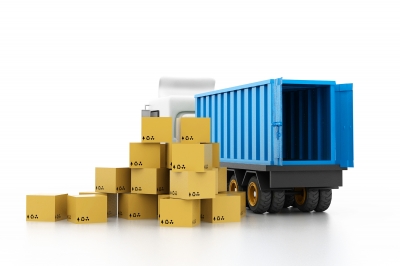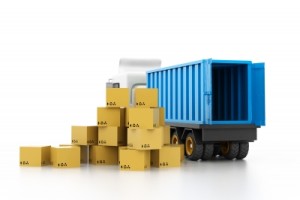

The Bureau of Customs (BOC) will adopt stricter policies on balikbayan boxes by October, noting government is losing at least P50 million a month in duties and taxes as a result of undervalued goods being shipped through such boxes.
Customs commissioner Alberto Lina in a statement described existing rules (specifically, Customs Memorandum Order 79-1990 enacted in 1990) as “obsolete” and needing reassessment “for stricter and improved compliance”.
Lina recently led spot checks at some warehouses holding balikbayan boxes, finding some “spilling with undervalued items and underdeclared contents”. He said the rules have been “misconstrued…People are sending in used clothing, home appliances and items of the kind that can well be used for commercial purposes.”
In an interview with media on August 18, BOC Assessment and Operations Coordinating Group deputy commissioner Atty. Agaton Teodoro Uvero said BOC will issue revised guidelines by October 1.
He admitted that the lenient policy of BOC over balikbayan boxes has been abused by some traders. Uvero cited cases of consignees – companies and not individual overseas Filipino workers (OFWs) – bringing in 10 or more container vans supposedly containing balikbayan boxes but instead yielding such boxes containing high-value and highly taxable items obviously meant for commercial use.
Potential duty and tax losses from undervalued goods shipped through balikbayan boxes, he said, can range from P50 million a month during off season to P150 million a month during peak season.
During off-season, there are on average 1,000 twenty-foot containers of balikbayan boxes shipped through the country’s ports every month, Uvero said. Each box normally contains 400 balikbayan boxes.
But during peak season – November to December when OFWs start sending gifts via balikbayan boxes for the Christmas holidays – the number of containers spikes to 2,000 to 3,000, equivalent to 800,000 to 1.2 million balikbayan boxes per month.
At the current P80,000 duty levied on 400 balikbayan boxes contained in one twenty-foot container, Uvero pointed out that the duty paid per balikbayan box is only P200, making it necessary to update charges.
He noted there is a proposal to increase duties and taxes on balikbayan boxes from P80,000 per twenty-footer to P120,000 per twenty-footer.
He said Commissioner Lina last week consulted freight forwarders/consolidators on the proposed changes to the balikbayan box policies.
As it is, the BOC, he said, has already done reassessment on some trade lanes. Since two weeks ago, he noted balikbayan boxes from the US have been assessed P120,000 per TEU.
Due to the significant amount of balikbayan shipments coming into the country’s ports, Uvero admitted the BOC cannot examine each and every box but can only conduct spot or random checking.
Limits
Balikbayan boxes are packages of personal effects or pasalubong sent by Filipinos residing or working abroad to families in the Philippines. They are mostly shipped by international sea freight forwarders.
BOC pointed out that balikbayan privileges have limitations. “The contents of a balikbayan box must not exceed US$500.00 in value. Canned goods, grocery items and other household effects must not exceed a dozen per kind, while apparel whether used or new must not exceed 3 yards per cut. Only one consignment per sender during a one-month period is allowed,” Lina said.
“Home appliances are not allowed unless these are consigned to returning Filipino residents and overseas contract workers. Don’t let any forwarder tell you otherwise. We will seize these prohibited shipments and revoke registrations of forwarders or consolidators if we find any violations.”
The following items are also banned and/or regulated: firearms and ammunition, prohibited drugs, pornographic materials, and gambling materials/apparatus.
Lina said examination of consolidated shipments is likewise mandatory to protect interests of the transacting public.
While some may be alarmed over boxes delivered that have been “already tampered”, he pointed out that “Customs is allowed by law to do a 100% check” of such boxes.
“If you think there are items missing, you can report these to the proper authorities,” he said.
Congressional inquiry
Meanwhile, Migrante, an organization championing rights of OFWs, has asked Congress to look into the matter of higher duties for balikbayan boxes.
Migrante party-list chair Connie Regalado said it has received reports the BOC has already imposed higher duties starting last July. A second increase will be implemented in October, she claimed.
“What is the reason and rationale for this increase? Why was it imposed despite strong opposition from forwarders and OFWs alike? Where will the added cost go?” Regalado asked.
She cited reports from balikbayan forwarders and consolidators that no consultations were held on the first increase, nor was there a memorandum issued covering its implementation.
Regalado said the increase should be investigated by Congress when it hears BOC’s 2016 budget proposal. She added that the additional fees would surely be passed on by freight forwarders to OFWs.
At last week’s meeting between Commissioner Lina and several freight forwarders/consolidators, many of the latter were against the higher duties and taxes.
Door-to-Door Consolidators Association of the Philippines director Ramon Ungco, in text messages to PortCalls, argued against the proposed increase, noting balikbayan boxes contain “only personal effects of OFWs”.
Instead Ungco, who was not present at the meeting with Lina, said BOC should “trim down all unofficial income and give what has been long overdue to stakeholders, which is genuine public service.”
He noted higher fees may mean “less balikbayan shipments and less income for BOC and the government.” Roumina Pablo
Image courtesy of hywards at FreeDigitalPhotos.net




